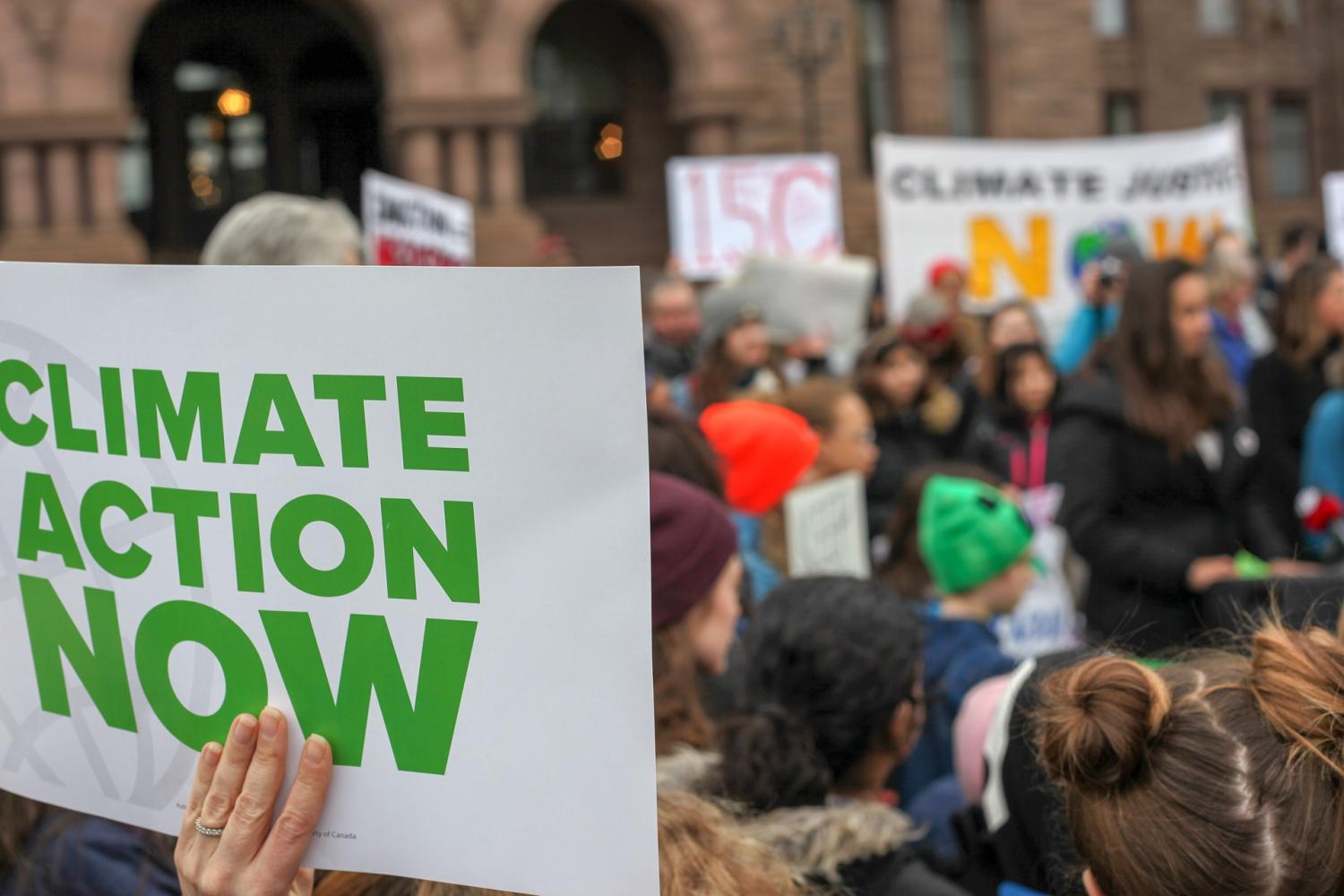
Workers at the Boston headquarters of the home furnishing company Wayfair raised the bar on employee activism earlier this summer, when they staged a street protest rather than settling for the now-familiar open letters to corporate leadership. At first it seemed like a one-off, but now employees at Amazon are prepared to take to the streets as well to join this month’s Global Climate Strike.
What happened in the weeks leading to the upcoming Global Climate Strike?
The Wayfair walkout marked a significant milestone in the employee activism movement. Although employee letters and petitions can attract some media attention, they do not have the visual impact of a street protest in the heart of a leading U.S. city.
Employees at Amazon may be following a similar trajectory. A group of workers has been lobbying the company to take a leadership role on climate change, and they are prepared to take it to the next level.
The vehicle for their protest is the upcoming Global Climate Strike on September 20.
The strike is supported by the #FridaysForFuture movement, sparked by Swedish climate activist Greta Thunberg in addition to other grassroots organizations.
Organizers of more than 2,500 events in 117 countries have already registered to join the Climate Strike. The group of Amazon employees may be unique, though, because they are apparently the only employee group from a leading company to join with the specific intent of calling attention to their employer’s climate policy.
The employee group Amazon Employees for Climate Justice posted a petition letter on Monday, September 9, detailing their case for joining the Climate Strike and calling for support.
By early Tuesday morning, 1,000 names were on the petition.
A call for climate leadership
While Thunberg and other activists call for government policy makers to step up and lead, the Amazon employees are focused squarely on their employer — and on themselves.
In an open letter published on Monday in Medium, the group made it clear that top executives at Amazon are not the only ones responsible for company policy.
“As employees at one of the largest and most powerful companies in the world, our role in facing the climate crisis is to ensure our company is leading on climate, not following,” the letter begins.
“We have to take responsibility for the impact that our business has on the planet and on people.”
The group does not let Amazon CEO Jeff Bezos off the hook, however.
They take Bezos to task for talking the talk on climate change, while engaging in business and politics that together promote the fossil fuel industry and its political allies:
“Amazon contributes directly to climate change through intensive use of fossil fuels throughout our businesses and pollutes communities with our fossil fuel infrastructure; we have custom solutions to help oil and gas companies accelerate extraction and exploration of new oil and gas reserves; we’re funding the premier climate denying think tank and we funded 68 members of Congress in 2018 who voted against climate legislation 100 percent of the time.”
Employee activism and brand reputation
The letter includes a series of detailed action steps aimed at reducing Amazon’s direct greenhouse gas emissions, cutting off contracts that accelerate oil and gas extraction, and zeroing out financial support for “climate denying lobbyists and politicians.”
That may seem like a tall order, but the employee group argues that Amazon is uniquely positioned to hit those goals. In fact, they appeal to the company’s own reputation as “one of the world’s most innovative companies.”
They argue that the climate crisis is an opportunity to reach the zero emissions goal ahead of the pack, “not one who slides in at the last possible moment.”
They also bring up their influence on other companies:
“…a company with the innovation, boldness, and resources of Amazon should be at the forefront of driving this transformation of our economy that the climate crisis requires. A commitment from Amazon has the power to move industries. Investment by the company in electrified aviation or maritime shipping would be a game-changer.”
In concluding their case, the employees point to their achievements so far in terms of developing a “a massive logistics network that achieves speed,” and they call for the company — and themselves — to “put at least that kind of effort, innovation, and multi-year dedication into achieving zero-emissions logistics.”
Another milestone for employee activism
If the Amazon group follows through on their walkout plans, it could mark another milestone in employee activism, in which workers emphasize their own complicity in corporate operations that they disagree with.
In some ways, that trend is already evident. Earlier this year, for example, a group of employees at the powerful public relations firm Edelman reportedly convinced their firm in private conversations to drop a contract with the prison firm Geo Group, after they refused to work on that client's projects.
Last month a group of Google employees ratcheted up that approach by taking their case straight to the public. Instead of waiting for corporate leadership to engage in a contract, hundreds of employees signed a petition pledging not to work on potential business with the U.S. Customs and Border Patrol or any other federal agency associated with human rights abuses.
If the Amazon group inspires other employees to join a street protest, the Google group could be next in line.
Image credit: Jasmin Sessler/Pixabay

Tina writes frequently for TriplePundit and other websites, with a focus on military, government and corporate sustainability, clean tech research and emerging energy technologies. She is a former Deputy Director of Public Affairs of the New York City Department of Environmental Protection, and author of books and articles on recycling and other conservation themes.














